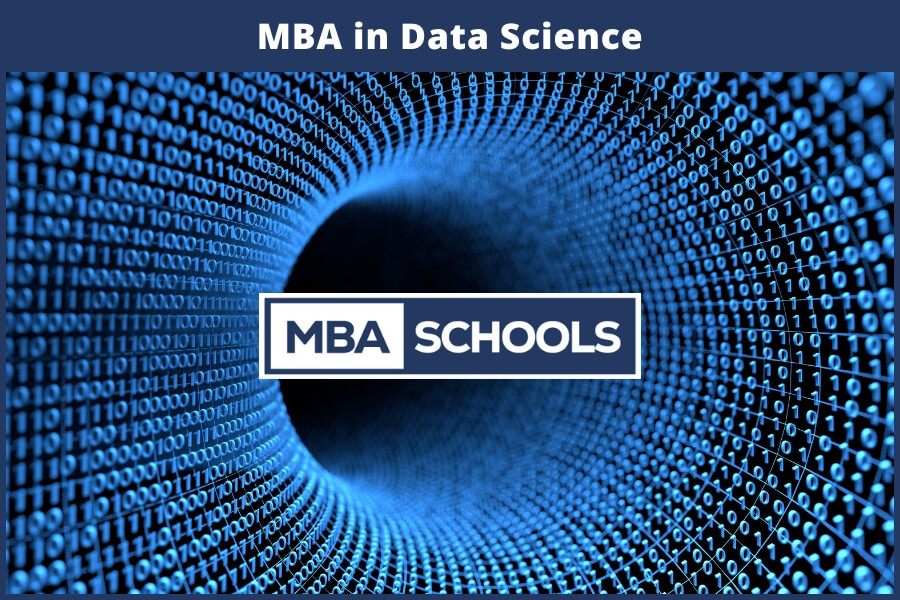MBA in Data Science
An MBA in Data Science is designed for professionals looking to combine business leadership with advanced data analytics, artificial intelligence, and machine learning. This specialization focuses on big data management, predictive modeling, business intelligence, and automation, equipping graduates with the ability to drive data-driven decision-making in finance, healthcare, technology, and consulting.
According to the U.S. Bureau of Labor Statistics (BLS), data science and analytics jobs are projected to grow 35% from 2021 to 2031, making it one of the fastest-growing career fields. Additionally, the median salary for data scientists is $131,490, reflecting the strong demand for professionals skilled in business analytics and data-driven strategy ( BLS). A report by McKinsey & Company states that organizations that effectively use data analytics are 23 times more likely to acquire customers and 19 times more likely to be profitable ( McKinsey).
An MBA in Data Science specialization is ideal for professionals seeking to leverage AI, automation, and predictive analytics to enhance business strategy and performance.

Table of Contents
What is an Online MBA in Data Science?
An Online MBA in Data Science provides a flexible pathway for professionals looking to develop expertise in big data, artificial intelligence, and machine learning while continuing to work. These programs focus on data-driven strategy, statistical modeling, and AI-powered decision-making, helping students prepare for business intelligence and analytics leadership positions.
Students gain expertise in cloud computing, Python and R programming, data visualization, and AI implementation, ensuring they can optimize business processes and enhance corporate decision-making. Many online programs integrate real-world case studies, data science boot camps, and machine learning projects, providing an immersive learning experience.
What Are the Admissions Requirements for an MBA in Data Science?
Admissions requirements for an MBA in Data Science vary by program, but typically include:
- Bachelor’s Degree – From an accredited institution, often in business, computer science, engineering, or a related field.
- Work Experience – 2-5 years of professional experience in data analysis, IT, finance, or business intelligence is preferred.
- GMAT/GRE Scores – Some programs require standardized test scores, while others offer waivers.
- Personal Statement – Discussing career goals and why the applicant is pursuing an MBA in Data Science.
- Letters of Recommendation – Typically from employers, IT executives, or academic mentors.
- Resume – Highlighting experience in data analytics, programming, and business strategy.
Is an MBA in Data Science the Right Specialization for You?
An MBA in Data Science specialization is best suited for analytical, detail-oriented professionals interested in leveraging data for business innovation. If you are passionate about predictive analytics, AI-driven decision-making, and machine learning applications, this specialization will provide the necessary tools for career success.
Unlike other MBA specializations, such as Business Analytics or MBA in Information Systems Management, an MBA in Data Science focuses on advanced data modeling, AI-powered automation, and deep learning applications. If you want to use big data to drive business strategy and optimize operations, this program may best fit you.
MBA in Data Science Curriculum: What Classes Will I Take?
Most MBA in Data Science programs take 1-2 years to complete, depending on whether students enroll full-time, part-time, or in an accelerated format.
Core Courses in an MBA in Data Science
The curriculum for a Data Science MBA specialization blends technical data analysis with business strategy through courses such as:
- Predictive Analytics & Machine Learning
- AI & Deep Learning in Business
- Big Data Management & Cloud Computing
- Business Intelligence & Data Visualization
- Data Ethics & Cybersecurity
- Python & R for Data Science
- Advanced Statistical Modeling & Forecasting
- Automation & AI-Driven Business Solutions
Many programs also incorporate real-world business analytics projects, including big data simulations, AI-driven automation projects, and cloud-based data science challenges. Some students complete internships with major tech firms, financial institutions, or consulting agencies to gain hands-on experience before graduation.
What Career Options Do I Have with an MBA in Data Science?
A Data Science MBA specialization prepares graduates for leadership roles in data-driven industries. Common job titles include:
- Chief Data Officer (CDO) – Leads enterprise-wide data strategies and AI initiatives.
- Data Scientist – Develops machine learning models and predictive analytics for business decision-making.
- Business Intelligence Director – Oversees corporate analytics and data-driven strategy.
- AI & Automation Manager – Implements AI-driven business solutions and automation processes.
- Risk & Fraud Analyst – Uses predictive modeling to identify and mitigate business risks.
Salary Expectations
Salaries for MBA in Data Science graduates vary based on industry, experience, and expertise. According to BLS and McKinsey, data science professionals with an MBA typically earn:
- Chief Data Officer (CDO) – $200,000+
- Data Scientist – $120,000 – $180,000
- Business Intelligence Director – $130,000 – $190,000
- AI & Automation Manager – $115,000 – $175,000
- Risk & Fraud Analyst – $100,000 – $150,000
Take the Next Step Toward a Data-Driven Leadership Role
An MBA in Data Science provides the analytical and technical expertise needed to leverage AI, big data, and machine learning to drive business growth. Whether you want to lead enterprise data strategies, develop AI-powered business solutions, or optimize corporate decision-making, this degree will give you the knowledge, skills, and network to achieve your career goals.
Explore top-ranked MBA in Data Science programs today and start advancing your career.
Sources
- U.S. Bureau of Labor Statistics. (2023). Occupational Outlook Handbook: Data Science & Analytics. Retrieved from https://www.bls.gov/
- McKinsey & Company. (2023). Data-Driven Business Strategies Report. Retrieved from https://www.mckinsey.com/